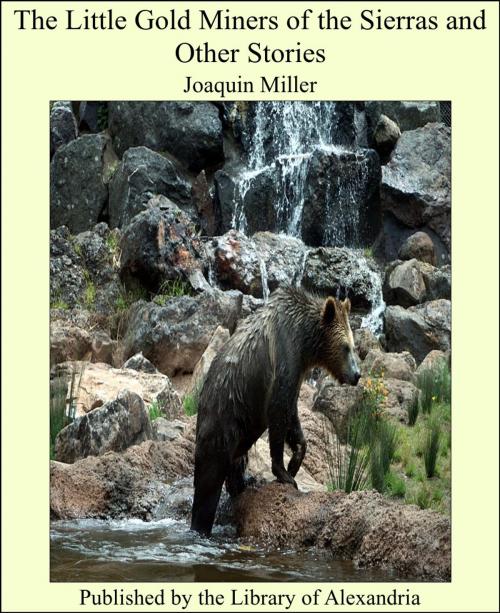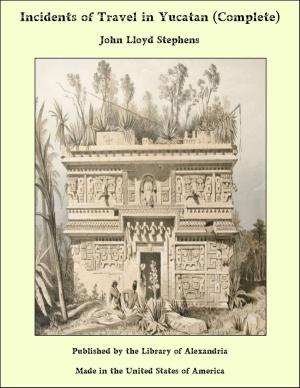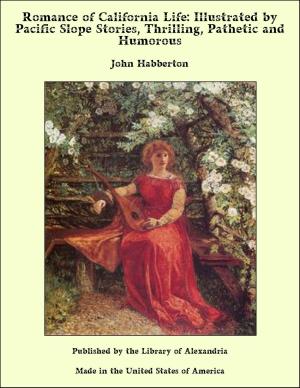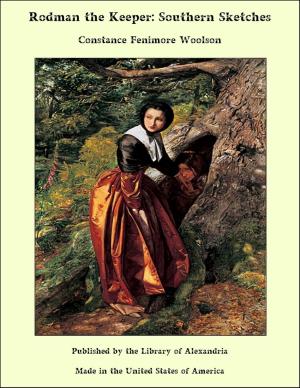The Little Gold Miners of the Sierras and Other Stories
Nonfiction, Religion & Spirituality, New Age, History, Fiction & Literature| Author: | Joaquin Miller | ISBN: | 9781465531889 |
| Publisher: | Library of Alexandria | Publication: | March 8, 2015 |
| Imprint: | Language: | English |
| Author: | Joaquin Miller |
| ISBN: | 9781465531889 |
| Publisher: | Library of Alexandria |
| Publication: | March 8, 2015 |
| Imprint: | |
| Language: | English |
THE LITTLE GOLD MINERS OF THE SIERRAS. Their mOther had died crossing the plains, and their father had had a leg broken by a wagon wheel passing over it as they descended the Sierras, and he was for a long time after reaching the mines miserable, lame and poor. The eldest boy, Jim Keene, as I remember him, was a bright little fellow, but wild as an Indian and full of mischief. The next eldest child, Madge, was a girl of ten, her father’s favorite, and she was wild enough too. The youngest was Stumps. Poor, timid, starved Little Stumps! I never knew his real name. But he was the baby, and hardly yet out of petticoats. And he was very short in the legs, very short in the body, very short in the arms and neck; and so he was called Stumps because he looked it. In fact he seemed to have stopped growing entirely. Oh, you don’t know how hard the old Plains were on everybody, when we crossed them in ox-wagons, and it took more than half a year to make the journey. The little children, those that did not die, turned brown like the Indians, in that long, dreadful journey of seven months, and stopped growing for a time. For the first month or two after reaching the Sierras, old Mr. Keene limped about among the mines trying to learn the mystery of finding gold, and the art of digging. But at last, having grown strong enough, he went to work for wages, to get bread for his half-wild little ones, for they were destitute indeed. Things seemed to move on well, then. Madge cooked the simple meals, and Little Stumps clung to her dress with his little pinched brown hand wherever she went, while Jim whooped it over the hills and chased jack-rabbits as if he were a greyhound. He would climb trees, too, like a squirrel. And, oh!—it was deplorable—but how he could swear
THE LITTLE GOLD MINERS OF THE SIERRAS. Their mOther had died crossing the plains, and their father had had a leg broken by a wagon wheel passing over it as they descended the Sierras, and he was for a long time after reaching the mines miserable, lame and poor. The eldest boy, Jim Keene, as I remember him, was a bright little fellow, but wild as an Indian and full of mischief. The next eldest child, Madge, was a girl of ten, her father’s favorite, and she was wild enough too. The youngest was Stumps. Poor, timid, starved Little Stumps! I never knew his real name. But he was the baby, and hardly yet out of petticoats. And he was very short in the legs, very short in the body, very short in the arms and neck; and so he was called Stumps because he looked it. In fact he seemed to have stopped growing entirely. Oh, you don’t know how hard the old Plains were on everybody, when we crossed them in ox-wagons, and it took more than half a year to make the journey. The little children, those that did not die, turned brown like the Indians, in that long, dreadful journey of seven months, and stopped growing for a time. For the first month or two after reaching the Sierras, old Mr. Keene limped about among the mines trying to learn the mystery of finding gold, and the art of digging. But at last, having grown strong enough, he went to work for wages, to get bread for his half-wild little ones, for they were destitute indeed. Things seemed to move on well, then. Madge cooked the simple meals, and Little Stumps clung to her dress with his little pinched brown hand wherever she went, while Jim whooped it over the hills and chased jack-rabbits as if he were a greyhound. He would climb trees, too, like a squirrel. And, oh!—it was deplorable—but how he could swear















